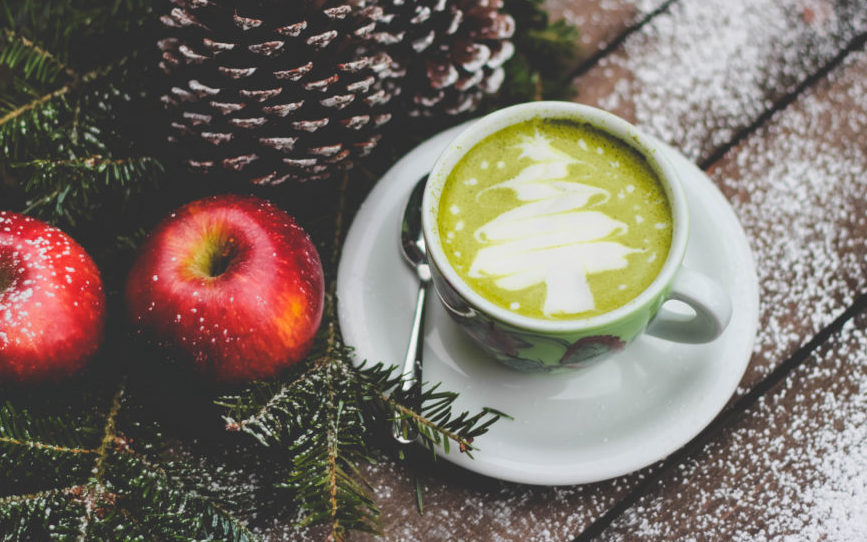5 Tips for Mindful Drinking This Holiday Season
We get it: Being mindful as a way to drink less alcohol is often much easier said than done—especially around the holiday season.
We arrive at the familiar family functions and find that, as usual, tension starts to build. The family begins to bicker, talk politics, or pester us about our plans for the future, which we have zero interest in talking about. So we get triggered. The idea of pounding bottomless spiked eggnog may cross our mind a time or two.
However, our rational self knows that excessive alcohol consumption never got us anywhere (except in trouble), so we slowly back off. We’re at an impasse, with the internal conflict brewing: to drink or not to drink? And if so, how much?
We all have a limit to the alcohol we can consume without a headache the next day, yet we can easily exceed that amount without proper planning. That’s where mindfulness and preparation can come to the rescue. Below, we’ll discuss how to drink mindfully—and stay hangover-free—this holiday season.
Here are five mindful drinking tips that I use with my clients to get them through the boozy holiday season:
1. Go into holiday get-togethers with confidence and a different perspective
Approach every occasion to drink with confidence and a different perspective. Why? Because with the right mindset, we can accomplish anything—including moderate drinking. Prepare ahead of time and imagine how you really want this experience to go. This practice can give you the inspiration and confidence to move toward what you want—i.e. fewer hangovers and more control over alcohol.
Some practical ways to shift your perspective:
- Take time to visualize exactly how you want the experience to go. Write out the details or even create a vision board. This will show your ideal scenario to both your conscious and unconscious mind, and help make it your reality.
- Create a list of everything you’d like to do the next day that a hangover would prevent you from doing.
- Write down keywords for how you want to feel at the function and the following day. Ask yourself honestly what actions you need to take to produce that feeling, and if alcohol should be a part of it.
2. Plan ahead
Are you going to drink? Are you not going to drink? Maybe just one glass of wine?
For many, “just one” can turn into “one too many” very quickly. But planning your alcohol consumption ahead of time can bring mindfulness into your drinking experience much more easily. With greater awareness on how much you intend to drink, you might find that you drink more slowly, and space out your drinks throughout that New Year’s or Christmas party. You might even notice the subtle buzz, or savor your drinks more.
The key here is to ensure you don’t drink so much that you forget about the goal you set out for yourself. Perhaps you can have a trusted friend who will help you stick to your number, or set reminders on your phone that remind you of your intentions. You can also keep in mind the tips in #1 to help you maintain focus on how you want the experience to go.
Read More: 7 Tips for Keeping Party Drinking Under Control

3. Bring something else (non-alcoholic) to drink
Having the option of non-alcoholic drinks is a great way to stay sober, or simply mix in between drinks. The possibilities are endless: sparkling water, hot chocolate, apple cider, kombucha, hot tea, or even non-alcoholic beer. Often at parties alcoholic beverages are the only choice, so it makes it too easy to just keep indulging. But if you bring an alternative, it gives you another option. These alcohol-free drinks could even serve as a gift to share with the host or other holiday party-goers.
4. Have gratitude
What if you woke up tomorrow with only what you were grateful for today?
This is a sobering question. And it makes most (if not all) people realize how many things—people, places, feelings, experiences, ideas, thoughts—there are to be grateful for. The holidays can be a hectic time. But did you know a growing body of research shows that expressing gratitude—even when done in solitude—can be beneficial to your mental health, and well-being overall? In fact, this research suggests that “high levels of gratitude might obscure life problems, such as risky or harmful levels or drinking, which might best be brought to light.”
So, as much as you can, bring gratitude to your alcohol moderation practice. Ask yourself the question above and, at every chance you get, remind yourself what you’re grateful for.
5. Set boundaries—remember the oxygen mask analogy!
We love the example of the oxygen mask on the planes: You must secure your mask before helping others secure theirs. So, how do you secure your “mask” in day-to-day life? By setting clear boundaries. By taking care of your needs when they arise. By taking care of your health and wellbeing so that you’re in a position to take care of others.
These self-care practices are usually so simple that they’re easily overlooked until we feel overburdened and resentful. We want to be liked by those around us, so we often allow ourselves to be taken advantage of—consciously or unconsciously. That can easily spiral into a feeling of losing control, which can then trigger us to use alcohol as a coping mechanism.
Take time to pause throughout the day and ask yourself, “What do I need right now?” Often, the answers are simple: a drink of water; 10 minutes of silence; a coffee break; listening to your favorite song. You can even just move and stretch your body around, thanking it for everything it does.
These little actions can have a big impact on your wellness, especially if you regularly check in with yourself on what you need. And in turn, this can lead to healthier relationships, and fewer drinking triggers. This holiday season and beyond, remember that you must secure your oxygen mask before you help others secure theirs.
Getting Support for Mindful Drinking This Holiday Season
If you’re looking for a more healthy relationship with alcohol, but struggling to stick with the limits you’ve set, you’re not alone. Since alcohol is an addictive substance, it sometimes takes some extra support to make a permanent, long-term change.
In addition to coaching sessions to help you drink more mindfully, Ria Health offers prescription anti-craving medications, expert medical advice, online support groups, and even handy digital tools—all from an app on your phone. Get in touch with a member of our team today, or learn more about how it works.
Laura Vincent is a certified health and wellness coach at Ria Health. Ria Health uses FDA-approved medications to help people drink less alcohol. Laura works closely with Ria members to help them overcome obstacles around drinking and to create a better version of themselves.
Will insurance cover treatment? Verify Coverage
Have Questions? Call (800) 504-5360



